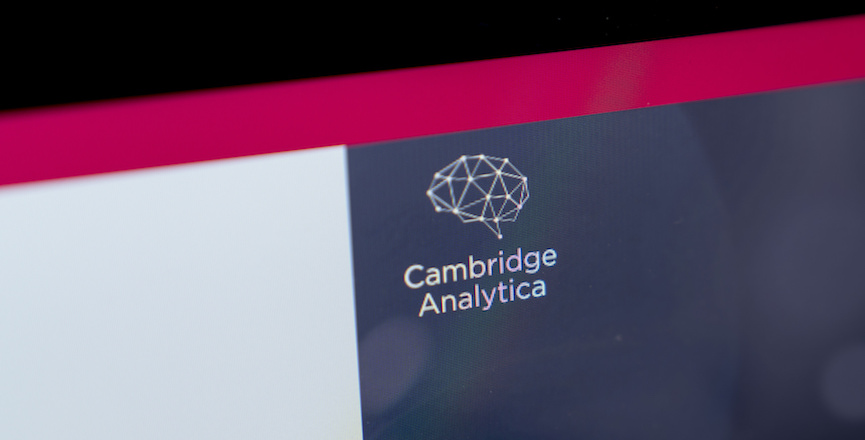“Using this app will supply the app with your bio and your friends’ list.” That warning always stopped me cold. I didn’t want to give up my own information. And I would walk through fire before I’d give up my friends’ information for some slight benefit of my own.
Just as being gluten-free saves me from pastry temptation, so this aversion saved me hours of productive time which might have been spent playing Farmville, Candy Crush or even Scrabble. Others must have felt the same way, because apparently Facebook removed the feature from apps in 2015.
But back then, a paid presentation on Facebook invited viewers to take an OCEAN personality test, rating themselves on Openness, Conscientiousness, Extroversion, Agreeableness, and Neuroticism (tendency towards sadness.) Just like the games, readers could share with their friends. [The original version of this test is actually available free on the University of Cambridge website.]
However, on Facebook, 270,000 who followed that OCEAN self-test offer must have encountered the “your bio and your friends list” app — an automatic “accept” for some users — and by accepting, they delivered their friends’ list to the researchers.
In this case, even though the researchers explicitly said they would not share the data, and Cambridge Analytica vigorously denied they did, somehow all the information ended up with Cambridge Analytica. Those 270,000 Facebook members averaged about 160 friends apiece, which is why Cambridge Analytica ended up tracking a total of 50 million Facebook Friends.
The U.K. “data” institute allegedly then used these zillions of pieces of information to tailor political advertising to U.S. voters, to the benefit of Republican candidate Donald Trump. While grave concerns remain about the U.S. election, and about Facebook’s complicity, at least apparently CA is not purloining any more data, or actively using what they have.
Facebook has apologized. Mark Zuckerberg told CNN, “This was a major breach of trust. I’m really sorry this happened. We have a basic responsibility to protect people’s data.” He told CNN that, re-thinking their open access tech policy Facebook will investigate “thousands of apps that have used Facebook’s platform, restrict developer access to data, and give members a tool that lets them disable access to their Facebook data more easily.”
On the other hand, says the CBC‘s Matthew Braga, Facebook’s reason for existence is advertising revenue, not sentiment. “As outrageous as that may sound, Facebook was operating exactly as it was designed to at that time — a design that left millions of its users unwittingly exposed.”
Meanwhile, regular Facebook visitors face a dilemma: to continue, or to cut the lifeline? Facebook has become the major global information highway, with two billion visitors every month.
With Facebook, you can leave a message, photo or video; you can chat and video chat; you can look up longlost school friends; you can get most of your most important news right away; and you can keep up with many angles on breaking events far away, without leaving your desk.
However, self-protection on Facebook is not that difficult. Mainly, if you want to lift up the hood and look at how to stop the information theft, there are two methods.
You can disconnect your personal Facebook page from the Facebook platform, which continues your newsfeed and Messenger functions, but no longer allows you to click through from the page to the reference — which quickly becomes a nuisance.
Or, you can manage your apps. To find your apps, go to Settings, and look at the lefthand menu. Click on “Apps” and you should see a list of icons. Click on any you don’t want or don’t recognize, and delete them. Here’s a video about how to do it on a phone.
The Cambridge Analytica campaign seems to have targeted potential Trump voters. But other campaigns are already on the way. There’s a video out from CRTV (yep, Christian Rightwing TV) that looks like it’s aimed at Jews. An African-American woman rages in a highly accusatory style that Democrats call Trump racist and yet they hang out with anti-Semite Louis Farrakhan. The complaint’s been made before, but not so viciously — and mid-terms are coming up.
A gram of prevention is worth a kilogram of cure. Now that we’re all hip to Snopes and junk news, it’s time to learn the simple art of practicing safe Facebook.
Behave as though you’re in a public place, which you are, even among “friends.” Make sure everybody in the picture has clothes on. Be discreet in your disclosures. Your friends love to celebrate or sympathize with you, but remember not all observers are so friendly.
Facebook is just the latest and most sophisticated medium to sell our eyes and attention to advertisers. We all use it for free. We use it instead of paying for the organizations that collect and present the news. There’s a New Media saying that crops up over and over again, a variation on “buyer beware.”
When you’re online, remember the central economic rule of the Internet: “If you’re not paying, you’re not the customer. You’re the product.”
Image: Thought Catalog/Flickr
Like this article? rabble is reader-supported journalism.




